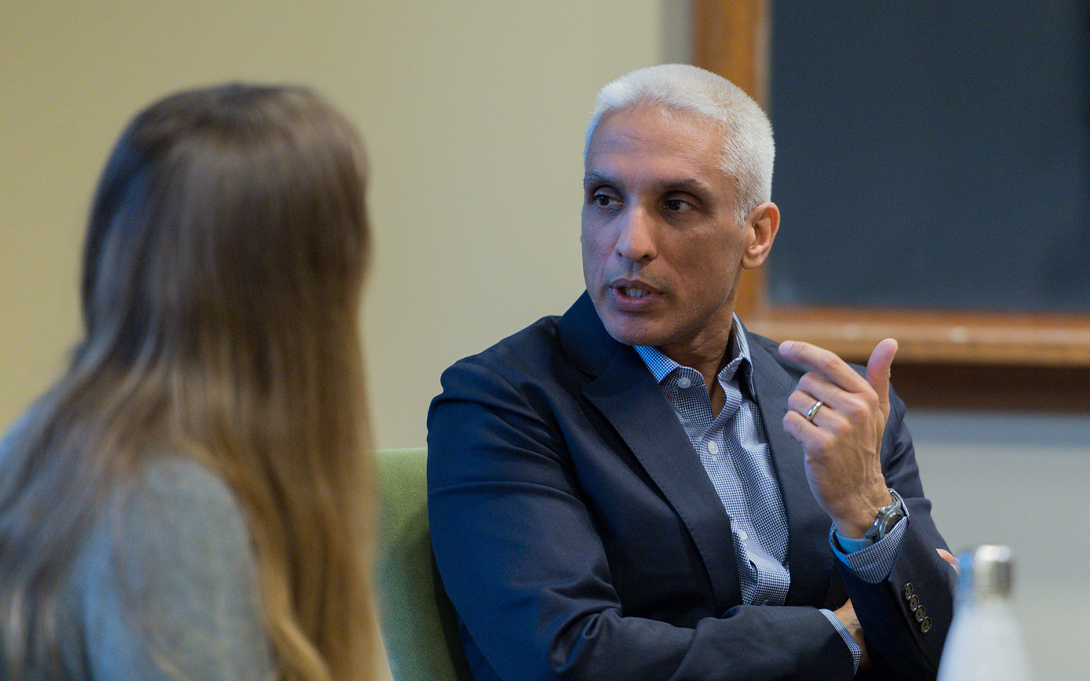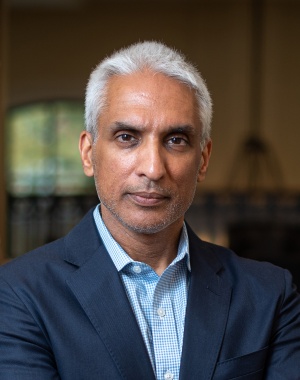
“Four months after the January 6 insurrection at the U.S. Capitol, the Biden administration has rolled out a series of measures to combat the serious threat of domestic terrorism,” Javed Ali, Towsley Foundation Policymaker in Residence at the Ford School, wrote in The Cipher Brief. “The administration needs to scale the response, and Congress needs to provide the necessary people and resources. In today’s divided Washington, this will be hard. Everything up until now has been the easy part.”
Ali has a plan for the U.S. to fight domestic terrorism: more resources and focus on the issue. He specifies a need to allow the National Counterterrorism Center (NCTC) to lead the fight against domestic terrorism.
“If approved by Congress, the White House, and Intelligence Community leaders–especially from Federal Bureau of Investigation (FBI) and Department of Homeland Security (DHS)–NCTC could bring value and new perspectives on domestic terrorism,” Ali wrote. Further, NCTC could become a “ ‘one-stop’ hub” for domestic terrorism and lead intelligence community projects to discover where more resources are needed.
It looks like the Biden administration is interested in pursuing those resources for domestic counterterrorism. On May 14, DHS issued a National Terrorism Advisory System (NTAS) bulletin on domestic violent extremism.
“While the bulletin does not appear to be based on a single and specific credible threat, it notes a range of factors and grievances that could drive individuals or groups to attack plotting,” Ali said. “The use other similar NTAS bulletins over the past year shows a more mature and disciplined use by DHS for this product, with the goal of educating and informing multiple stakeholders.”
While this is a step the right direction, the U.S. government still doesn’t define violent extremist groups as terrorist groups, which could help counter domestic terrorism when it comes to prosecution. “It’s another missing piece of policy framework that doesn’t allow the FBI to open investigations,” Ali said in the CQ Researcher. Allowing prosecutors to charge domestic terrorists as such “would have changed the perception of what this threat looked like.”
Increasing prosecution of terrorists, both domestic and international, could be tricky, though. For example, the recent Colonial Pipeline cyberattack has raised questions about how to stop international terrorists. Ali shared his thoughts with the podcast KNX In Depth.
“One option is to build criminal cases led by the Department of Justice and FBI investigators and other federal department agency investigators … to then bring, theoretically, to court or at least issue indictments for the arrest of individuals associated with these types of attacks,” he said. “But, if you’re sitting in a country like a Russia or a China … or all these other countries that are hostile to the U.S. and our interests overseas, the odds of actually having those people extradited back to face some type of criminal proceeding in the United States is very low to almost none.”
Prosecuting foreign terrorists is a lot more complicated than holding domestic terrorists accountable. Although international terrorism is still an issue, the rise in domestic terrorism has forced the U.S. government to shift its focus. But, taking counterterrorism efforts, specifically tracking social media, too far could impose on Americans’ civil liberties, Ali told USA Today.
“They’re just kind of dusting off something that has existed in various periods and iterations. It’s not necessarily new, it’s more kickstarting older efforts,” Ali said. “I saw the results of this cottage industry explosion post-9/11 when everyone was an international terrorism expert, and if we’re not careful, we’re going to do the same dumb thing on domestic terrorism.”
You can read and hear news items featuring Ali below:
- Domestic Terrorism: Does hate-filled political rhetoric fuel extremism?, CQ Researcher, May 14, 2021.
- First New Steps to Combatting Domestic Terrorism, The Cipher Brief, May 14, 2021.
- Feds are tracking Americans’ social media to identify dangerous conspiracies. Critics worry for civil liberties, USA Today, May 14, 2021.
- US facing 'complex and volatile' threats from domestic terrorism: DHS, ABC News, May 14, 2021.
- Repurpose Counterterrorism Tools to Counter Domestic Terrorism, Alchemist, Alchemist, May 13, 2021.
- A $5 million payoff gets gas flowing through Colonial Pipeline again, KNX In Depth, May 13, 2021.
